Scientists have mapped the entire genome of sheep, paving the way to improve the health of the humble farm animal for better meat and wool.
After eight years of work on the entire genetic makeup of the species, the researchers also found the secrets of the sheep's digestive system and unique fat metabolism process that allows it to produce and maintain its thick coat.
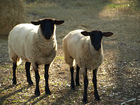 Full Story
Full Story
An Australian plan to limit future port developments on or near the Great Barrier Reef to five areas was Friday criticized as "business as usual" and "destructive" by conservationists.
Queensland Infrastructure Minister Jeff Seeney said late Thursday the state's strategy would see future port developments centred on Townsville, Abbot Point, Hay Point and Mackay, Gladstone and Brisbane.
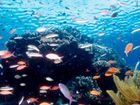 Full Story
Full Story
The United Nations seized World Environment Day Thursday to demand action on climate change to protect small island states threatened by rising seas, drought and floods.
"We have very, very alarming news from science," U.N. climate chief Christiana Figueres told reporters in Bonn at a new round of talks on global warming.
 Full Story
Full Story
Kenya's embattled wildlife service announced Thursday the discovery and seizure in the port city of Mombasa of a huge haul of ivory from at least 114 poached elephants.
The find of 228 tusks and 74 ivory pieces is thought to be biggest of its kind so far this year, the Kenya Wildlife Service (KWS) said.
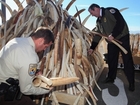 Full Story
Full Story
Criminals' days may be numbered after Dutch forensic experts discovered how to accurately date fingerprints, a breakthrough that could one day let police date crime scene prints from years ago.
"It's not quite the Holy Grail of fingerprinting, but it's a very important discovery," Marcel de Puit, fingerprint researcher at the Dutch Forensic Institute (NFI), told Agence France Presse on Wednesday, hailing what he said was a world's first.
 Full Story
Full Story
By absorbing carbon emissions from the atmosphere, the seas avert climate damage worth up to $222 billion (163 billion euros) every year, according to an estimate released on Thursday.
Fish catches are worth another $16 billion annually, according to the report by a non-governmental watchdog, the Global Ocean Commission, which hopes that by setting an economic price on the value of international waters, the bounty will be better managed.
 Full Story
Full Story
Gray wolves roaming into California from Oregon will have added protections now that a state board has listed the species as endangered despite other parts of the country relaxing rules on hunting the iconic predator.
The California Fish and Game Commission's vote Wednesday came as biologists announced that an Oregon wolf famous for hopscotching between the two states has fathered pups within about 50 miles (80 kilometers) of the border, making it a matter of time before more wolves make California home.
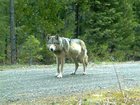 Full Story
Full Story
Australia's cuddly koala rarely drinks water and doesn't have any sweat glands, long leaving scientists to wonder how it cools off in a heatwave.
On Wednesday, zoologists announced they had uncovered the iconic mammal's secret -- hugging trees, whose trunks can be several degrees cooler than the surroundings.
 Full Story
Full Story
An American who illegally imported dinosaur skeletons from Mongolia -- one of them 70 million years old -- was sentenced Tuesday to three months in prison, authorities said.
Eric Prokopi, who pleaded guilty back in December 2012, was accused of ordering from Mongolia and then carefully rebuilding a 70-million-year-old Tarbosaurus bataar (T-bataar) skeleton.
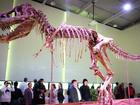 Full Story
Full Story
A Japanese stem cell scientist accused of fabricating research has agreed to retract papers published in the respected journal Nature, an official said Wednesday.
Haruko Obokata, 30, would withdraw two papers at the centre of the controversy, according to a spokeswoman for Riken, the respected research institute that sponsored the study, marking a steep fall from grace for the young researcher.
 Full Story
Full Story



